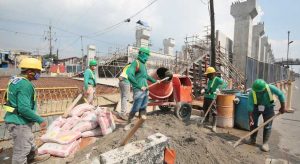Startup seeks to drive innovation in corporations via venture building

REDD-F-UNSPLASH
By Patricia B. Mirasol, Multimedia Producer
RECOGNIZING the need for structured support and guidance, venture studios have emerged as vital players in the startup ecosystem, according to an industry player.
This is particularly evident in the Philippines where venture builders are paving the way for innovation and growth, said Rolan Marco U. Garcia, Embiggen Group’s founding chief executive officer and managing partner.
Founded in 2020 with a bold proposition, Embiggen Group set out to revolutionize the traditional approach to startup incubation by embedding incubators within corporations.
This model aims to leverage the resources and infrastructure of established companies to fuel the growth of emerging startups, he said.
“We think that organizations that are resilient and sustainable grow their core businesses and build new ones,” Mr. Garcia said.
He mentioned Amazon as an example, illustrating how the company began with books, then broadened its offerings with the introduction of the e-reading device Kindle, and eventually expanded even further by venturing into cloud computing with Amazon Web Services.
He said this serves as an example of a company that strengthens its existing core business while simultaneously establishing ventures that are non-core.
“Those companies that are resilient and innovative are not prone to disruption,” added Mr. Garcia, noting the textbook examples of erstwhile industry leaders like Kodak and Nokia.
Corporations could also choose the mergers and acquisitions route to innovate, as KonsultaMD did with the home services app AIDE, and as the Robinson’s Group did with the health and beauty shop BeautyMNL, he said.
“If there’s no company to buy, you create your own.”
“For those CEOs who are entrepreneurial, they really look at venture building as the next horizon for growth and transformation for organizations, while keeping their core business intact,” he added.
THE STARTUP ECOSYSTEMThe Philippines ranked 59th on the Global Innovation Index by the World Intellectual Property Organization, scoring best on the innovation pillars of Business Sophistication (ranked 39th worldwide) and Knowledge and Technology (ranked 41st worldwide).
The same report said the Philippines’ innovation performance is above expectations given its level of development (lower middle-income).
Foxmont, in its Philippine Venture Capital Report of 2023, noted how the Philippine startup ecosystem is developing to more mature companies. The venture capital investment firm has had several of its own portfolio companies raise series A in 2022, including mother care platform Edamama and community selling platform SariSuki.
The Philippine startup ecosystem, Mr. Garcia said, is made up of funders, ecosystem enablers, and the founders that are supported by the first two.
“We’re about to reach a tipping point,” he said, referring to the local startup scene. “There are plenty of opportunities, and we need more entrepreneurs to seize them.”
Central to the success of any startup venture is the right blend of expertise, resilience, and vision, he noted.
Ideally, founders “should have a deep domain expertise in a specific industry. They should also demonstrate mental toughness.”
Founders should also be able “to solve a big market opportunity with a solution that’s scalable,” he added. “That solution is usually tech-enabled.”
He said that addressing niche problems in a small market might not allow for expansion or attract investment from venture capitalists.
Venture builders help startups overcome the initial challenges of growth through various methods, he noted.
First, founders who may already have good artificial intelligence-first ideas would benefit from having venture builders’ assistance, especially those who do not know how to strategize in terms of hiring data scientists or building their own large language models, Mr. Garcia said.
Second, such venture studios can help a lone founder find the best fit for a co-founder.
“Entrepreneurship is a lonely journey, [and] the studio acts as a co-founder,” Mr. Garcia said.
“We also help with general business management and with expertise in finance. How do you raise money? How do you price your service?”
The Philippines has numerous pain points waiting to be addressed, spanning across healthcare, energy, transportation, and logistics sectors.
“How do you connect 7,000 islands in terms of middle-mile and last-mile logistics?” Mr. Garcia asked.
“You won’t even know the problems unless you’ve worked in the middle mile.”
Logistics costs are high in the Philippines, he noted, which is why unit economics — measuring customer value against the cost of acquisition — are “not good” for retailers and e-commerce.
“The players that are already there haven’t fully solved the market yet,” Mr. Garcia said.
“Just because there’s a PayMongo [a payment gateway for Filipino businesses] doesn’t mean you shouldn’t create another PayMongo.”




